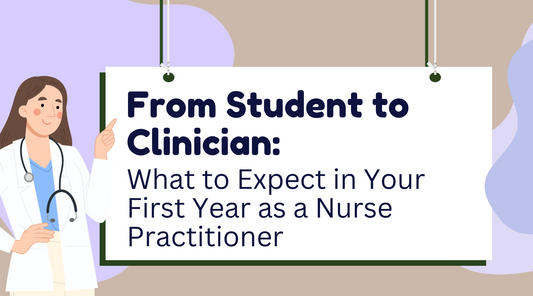A Nurse Practitioner (NP) Fellowship is a specialized post-graduate training program designed to provide additional clinical experience, professional development, and advanced skills to NPs who have recently completed their education. These programs serve as a bridge between formal education and real-world clinical practice, particularly for those seeking expertise in a specific specialty.
Typically lasting between 6 to 12 months, fellowships are hosted by healthcare institutions, such as hospitals, clinics, or academic medical centers. They focus on hands-on training, mentorship, and collaboration, helping new NPs transition confidently into their professional roles.
What to Expect During a Nurse Practitioner Fellowship
During a fellowship, participants engage in a structured curriculum that often includes:
- Clinical Rotations: Rotations in various settings, allowing fellows to refine diagnostic, procedural, and patient management skills under the supervision of experienced healthcare professionals.
- Mentorship: Guidance from seasoned nurse practitioners, physicians, and interdisciplinary teams to provide personalized feedback and support.
- Educational Activities: Opportunities to attend workshops, lectures, and conferences to deepen theoretical knowledge.
- Research and Quality Improvement: Some programs include opportunities to participate in research initiatives or quality improvement projects, contributing to advancements in patient care.
- Leadership Development: Training in leadership and management to prepare fellows for roles beyond clinical practice, such as administration or education.
The ultimate goal of a fellowship is to provide NPs with advanced clinical expertise and professional growth, helping them deliver high-quality care and succeed in their chosen specialty.
Eligibility and Requirements
To apply for a nurse practitioner fellowship, applicants generally must meet these prerequisites:
- Completion of an accredited nurse practitioner program.
- Current nurse practitioner licensure in the state where the fellowship is offered.
- Strong references and a commitment to the specialty area of focus.
- In some cases, additional certifications or prior experience in a specific clinical area may be required.
Many fellowships are competitive, and applicants should carefully review program-specific requirements and tailor their applications accordingly.
Top Nurse Practitioner Fellowship Programs
Here are some of the most recognized nurse practitioner fellowship programs across the United States:
1. University of California, San Francisco (UCSF)
UCSF offers robust NP fellowship programs in specialties such as acute care, primary care, and women's health, combining hands-on experience with research and academic opportunities.
2. Johns Hopkins University Nurse Practitioner Residency Program
This prestigious program focuses on clinical excellence and professional development, offering specialties like primary care, acute care, and more.
3. Cleveland Clinic Nurse Practitioner Fellowship
Renowned for its world-class medical care, Cleveland Clinic provides fellowship opportunities in critical care, emergency medicine, family medicine, and women's health.
4. Mayo Clinic Nurse Practitioner Fellowship
With a reputation for excellence, the Mayo Clinic's fellowship programs cover various specialties, including cardiology, critical care, dermatology, and more.
5. Vanderbilt University Medical Center
This program emphasizes advanced clinical skills and mentorship for NPs in fields like emergency medicine, surgical services, and primary care.
Tips for Applying to Fellowships
- Start Early: Research fellowship opportunities well before you graduate, as application deadlines vary.
- Tailor Your Resume: Highlight relevant education, certifications, and clinical experiences.
- Write a Strong Personal Statement: Emphasize your passion for the specialty, career goals, and how the fellowship aligns with your aspirations.
- Gather Strong References: Seek recommendations from faculty, preceptors, or supervisors who can vouch for your clinical skills and dedication.
- Prepare for the Interview: Be ready to discuss your experiences, strengths, and motivations for pursuing the fellowship.
Why Consider a Nurse Practitioner Fellowship?
A fellowship can be a game-changer for new NPs. The specialized training and mentorship provide a solid foundation for advancing clinical skills, boosting confidence, and enhancing career prospects. Whether your passion lies in critical care, cardiology, dermatology, or primary care, these programs equip you with the tools needed to excel in your chosen field.
If you're a newly minted NP ready to take your career to the next level, exploring fellowship opportunities may be the next step in your professional journey.
Final Note: Availability and program details can change, so always visit the official websites or contact institutions directly for the most up-to-date information.



